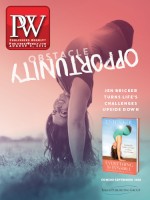Astrophysicist Dr. Neil deGrasse Tyson, director of the Hayden Planetarium, has been dropping science on the public for two decades. He’s written ten books, hosted the 2014 Emmy award-winning TV mini-series Cosmos, and is an editor of StarTalk: Everything You Ever Need to Know about Space Travel, Sci-Fi, the Human Race, the Universe, and Beyond, the companion book to the pop culture-oriented podcast and late night science talk show of the same name, which begins its third season on the National Geographic Channel on September 19th. The book expands on various subjects from the series, from black holes, space exploration and human evolution to futurology, climate change, and time travel, with special guests Malcolm Gladwell, Anthony Bourdain and fellow science educator, Bill Nye.
How is the book an extension of the show’s efforts to bring science to the public through popular culture?
In the show, there were certain lines, spoken by me, spoken by my comedic co-hosts, and lines spoken by my guests, that are particularly potent in terms of getting someone’s attention. But [those lines] in an audio-visual format don’t lend themselves to be fleshed out, the way they can in the printed word. So we use the clever, fun and interesting commentary in the show as cues in the book, to develop them as topics. And that way, by reading the book, you can learn more than just by listening to the show.
One of my favorite selections in the book is the feature on Nichelle Nichols, The African-American actress who not only played Lt. Uhura in the original Star Trek TV series, but also recruited minorities for NASA.
As a scientist of color, was she inspirational to you as well?
For me, it wasn’t so much that she was black, but that there was an Asian, and there was a half-alien (Spock) … So I was intrigued by how diverse the show was, more than I was intrigued by the fact that she was specifically black. And nothing on television at that that time had any diversity at all. The StarTalk episode that featured her story, which included her meeting with Martin Luther King [who talks her out of quitting the show], is science, its science fiction, its exploration, its pop culture … It’s all there in that show!
What science topics are people fascinated with?
People love asking about life in the universe. They want to know what was around before the universe. They want to know the fate of our species. They want to know about quirky things like, what happens if you go back in time and change the future? Some of these questions we don’t have answers for but there are scientific investigations that are trying to address them.
You address many of those questions in your books including, Death by Black Hole, a collection of essays published in Natural History magazine, Origins, a history of the universe, and your memoir, The Sky is Not The Limit. How do you write, and who are your literary inspirations?
Basically, I write in a peaceful corner of the house. But unlike many people, I can write to very loud music – particularly music with a beat. I feel that when there’s a beat going, it sort of advances my thoughts, pushing them along, sort of like a thought engine. As for my literary inspirations, George Gamow was a physicist who wrote for the public. And he wrote charming books that he hand-illustrated. And one of them was entitled One, Two, Three … Infinity. The title was inspired by a tribe somewhere that believed that anything more than three is uncountable. The book is an exploration of math, physics, and science, in general. Also, [there were] the Isaac Asimov books. These people devoted big parts of their lives to sharing science with the public … those are the books that definitely influenced my ambitions, my curiosity, and ultimately, my urge to give to the next generation what was given to me.
Like Asimov and Einstein, you have the rare ability to explain the complexities of science without watering it down.
My Prime Directive – as the say in Star Trek – is to never dumb something down. The public knows if your dumbing something down. People want to be treated with respect. If you give people credit for being able to figure something out, I think they can become sort of a learning ally in what you do.
One of your learning allies was the great scientist/educator Carl Sagan, the creator and host of the original Cosmos series. You met him at start of your college years. How was he an inspiration and guide for you?
For me, the fact that he could do what he did, was, as they say in mathematics, an existence proof. Sagan showed that it was possible to bring all of the sciences to the public in a way they could embrace. And that told me that if I stepped in that direction, I may be successful in that exercise.



 Volume 263
Issue 32
08/08/2016
Volume 263
Issue 32
08/08/2016





